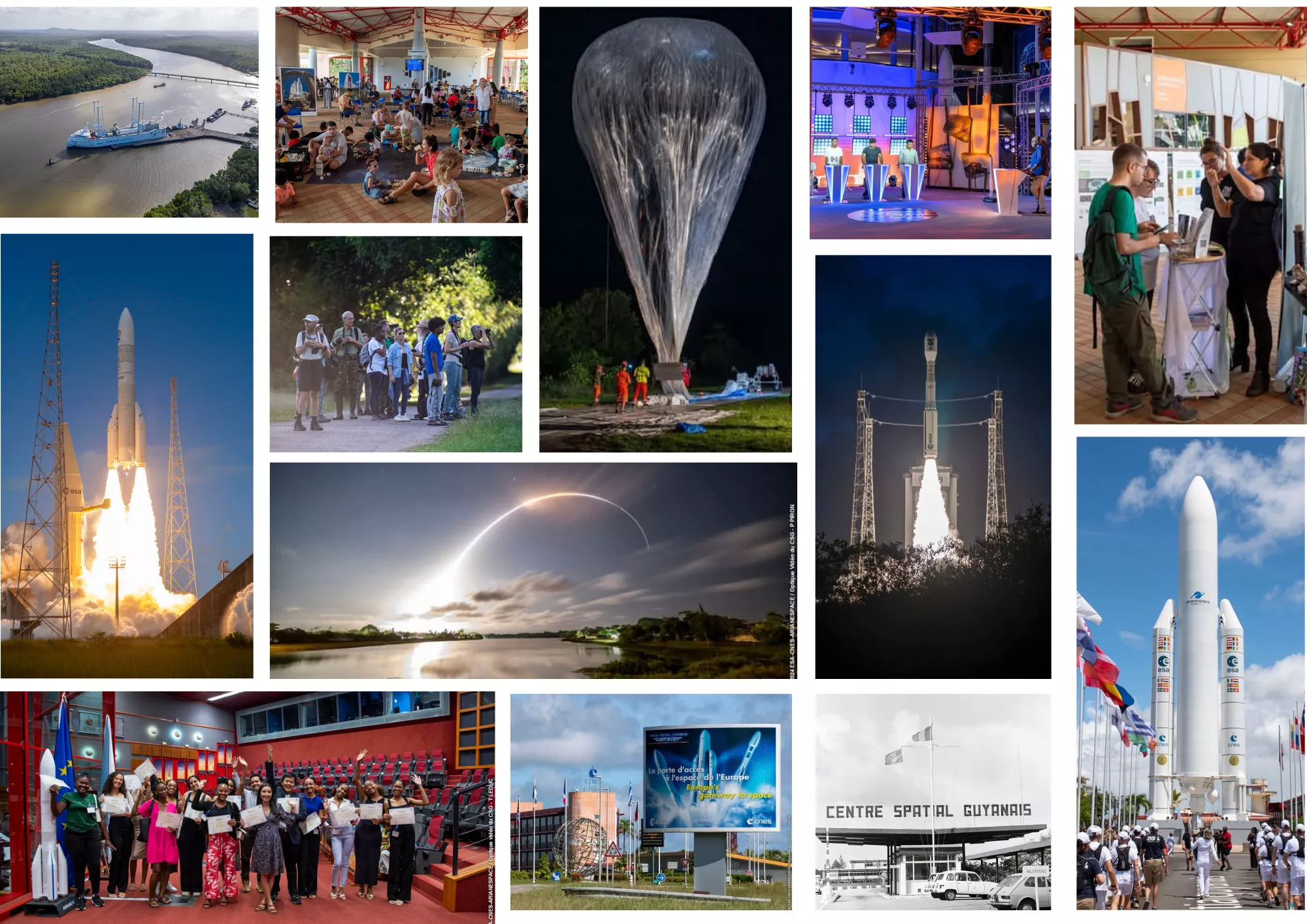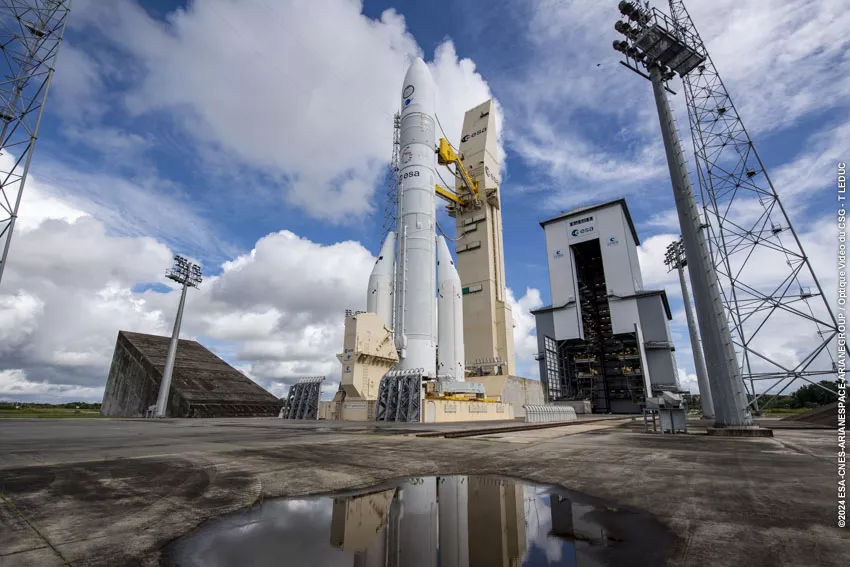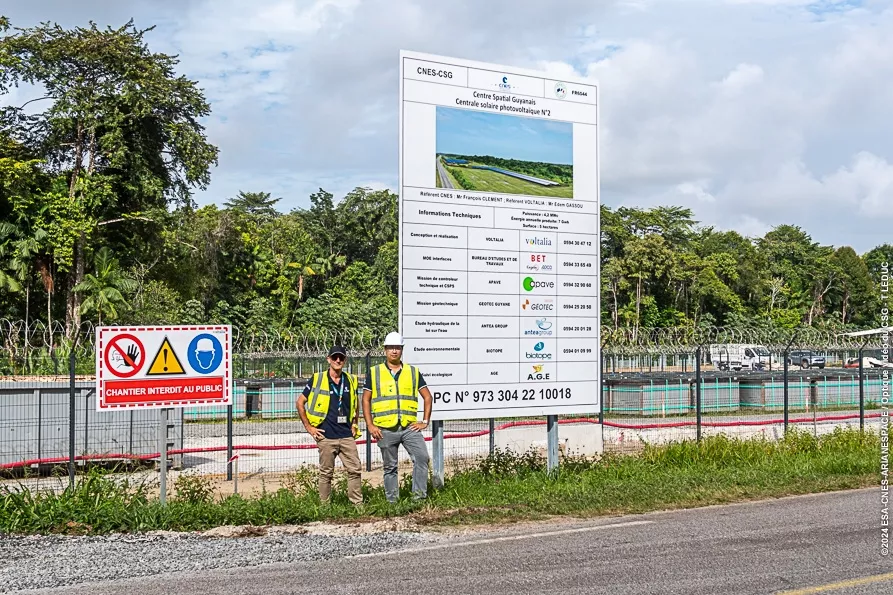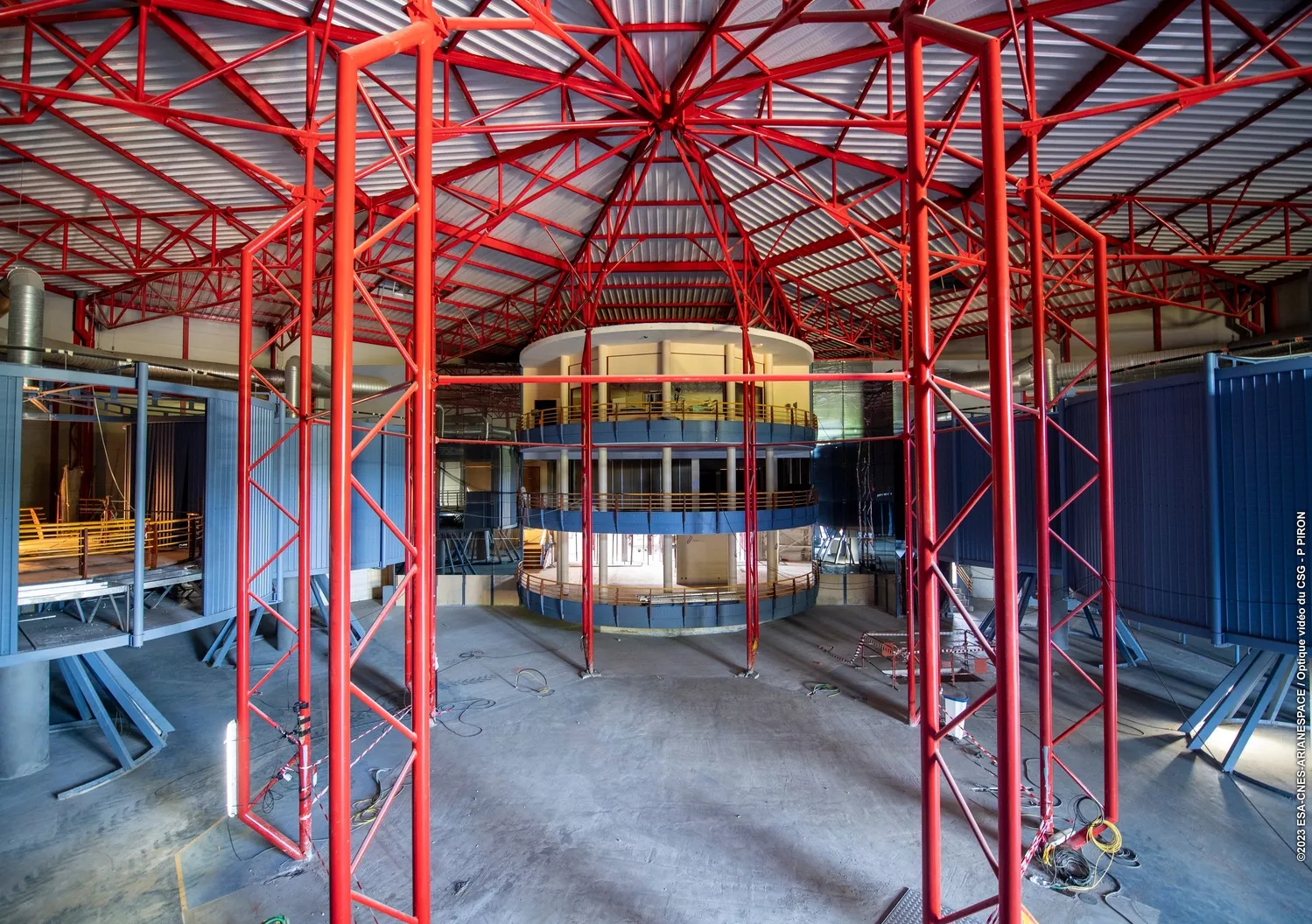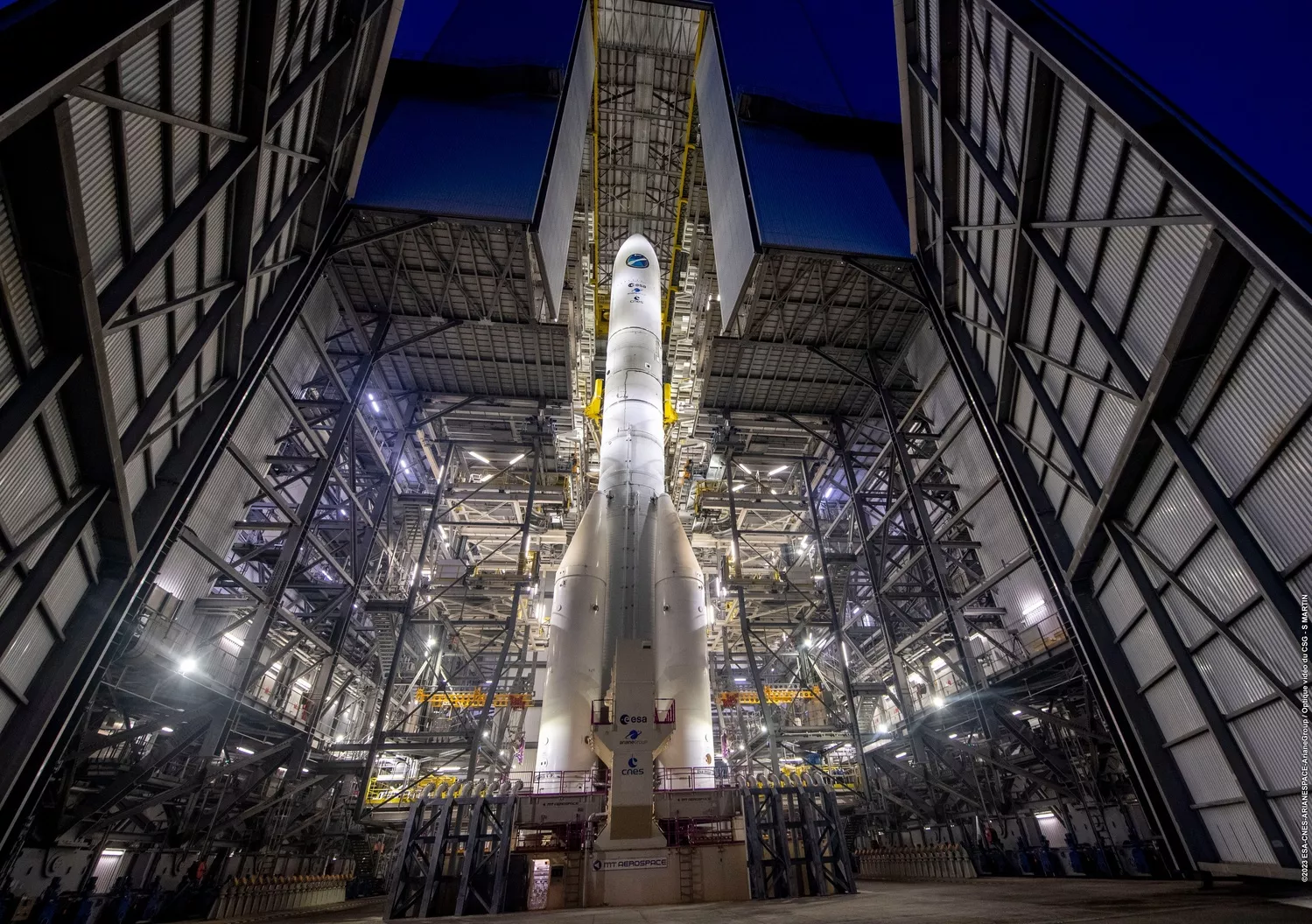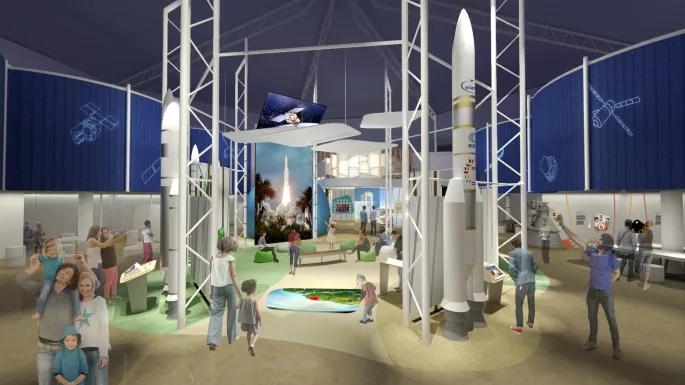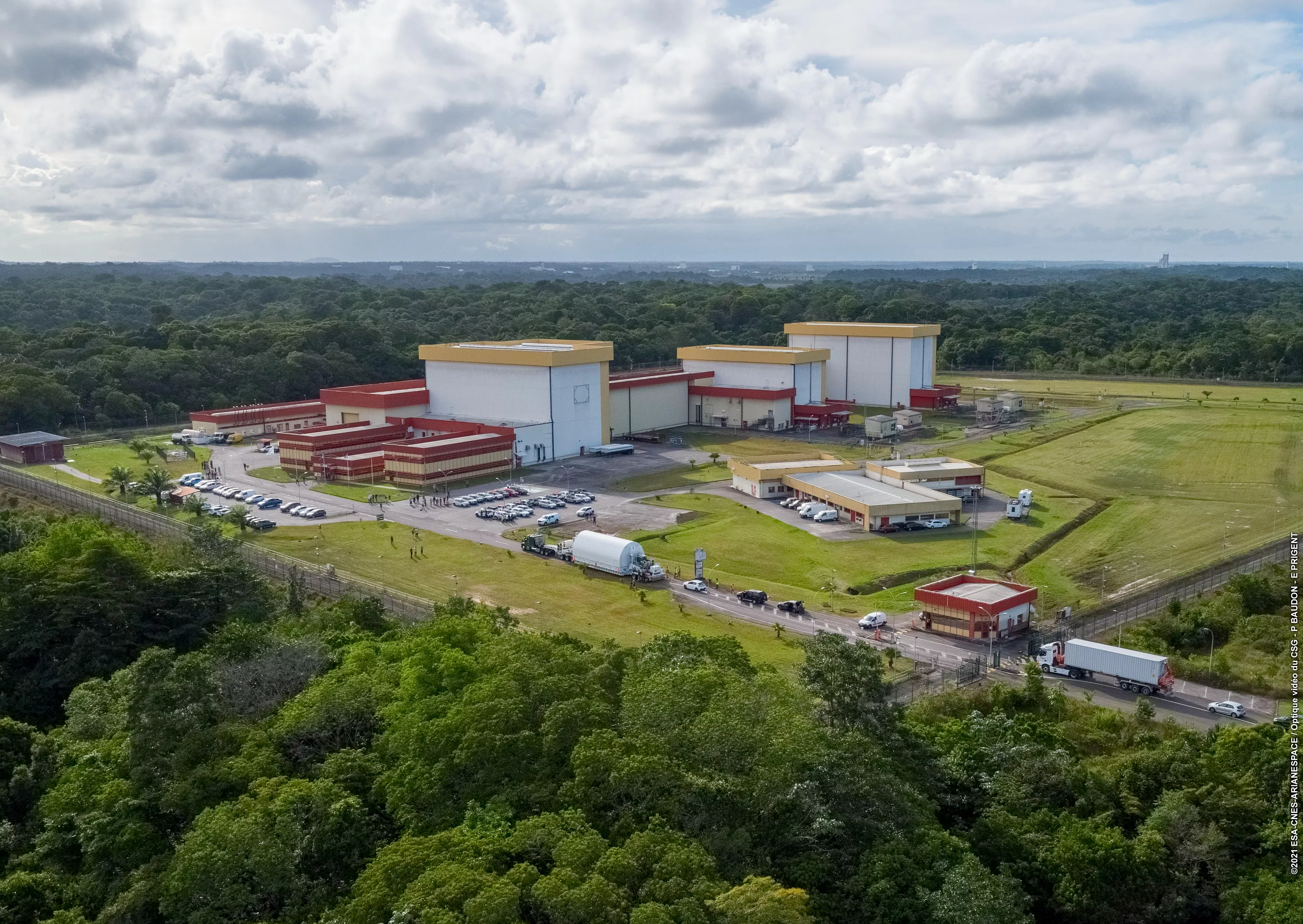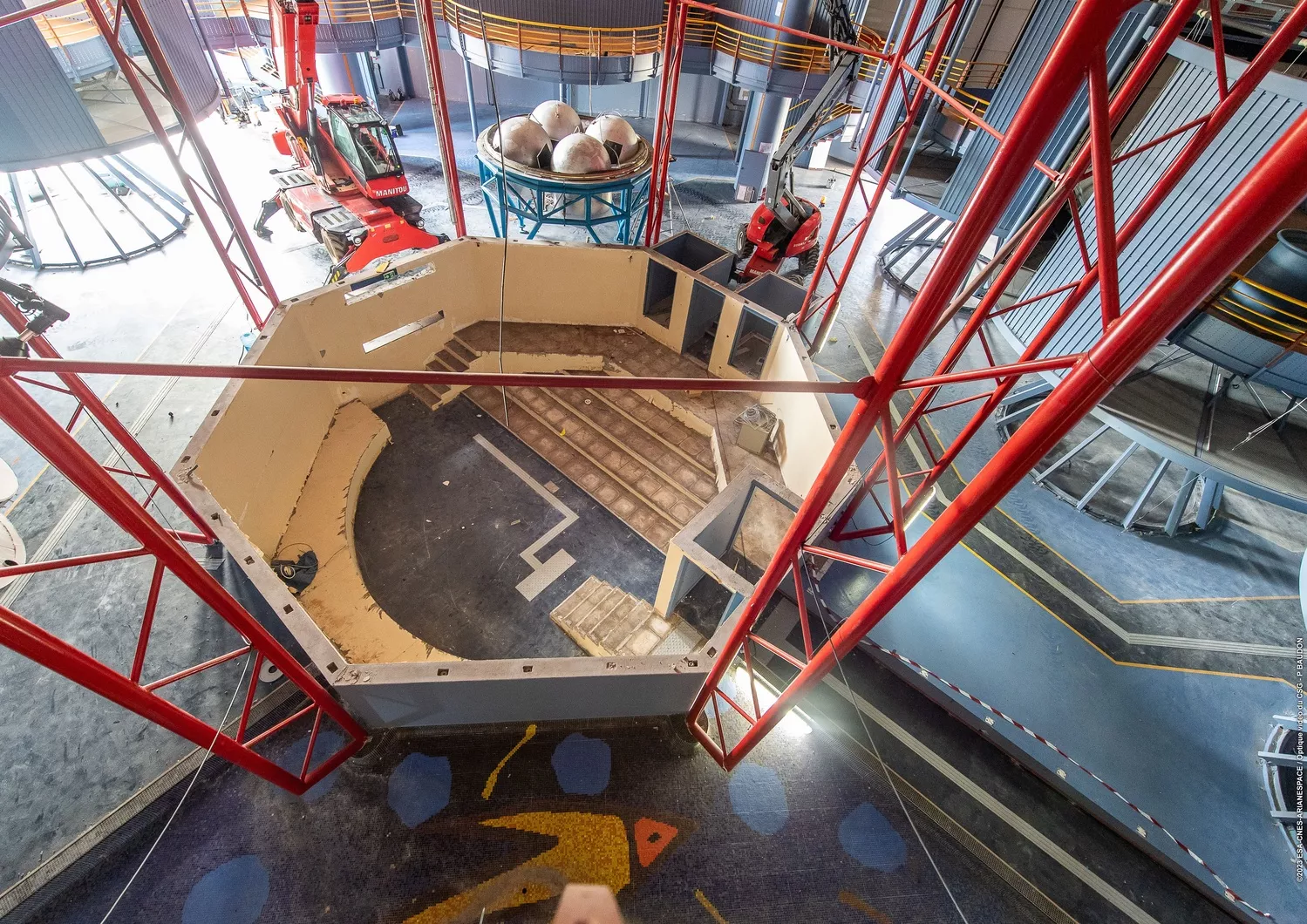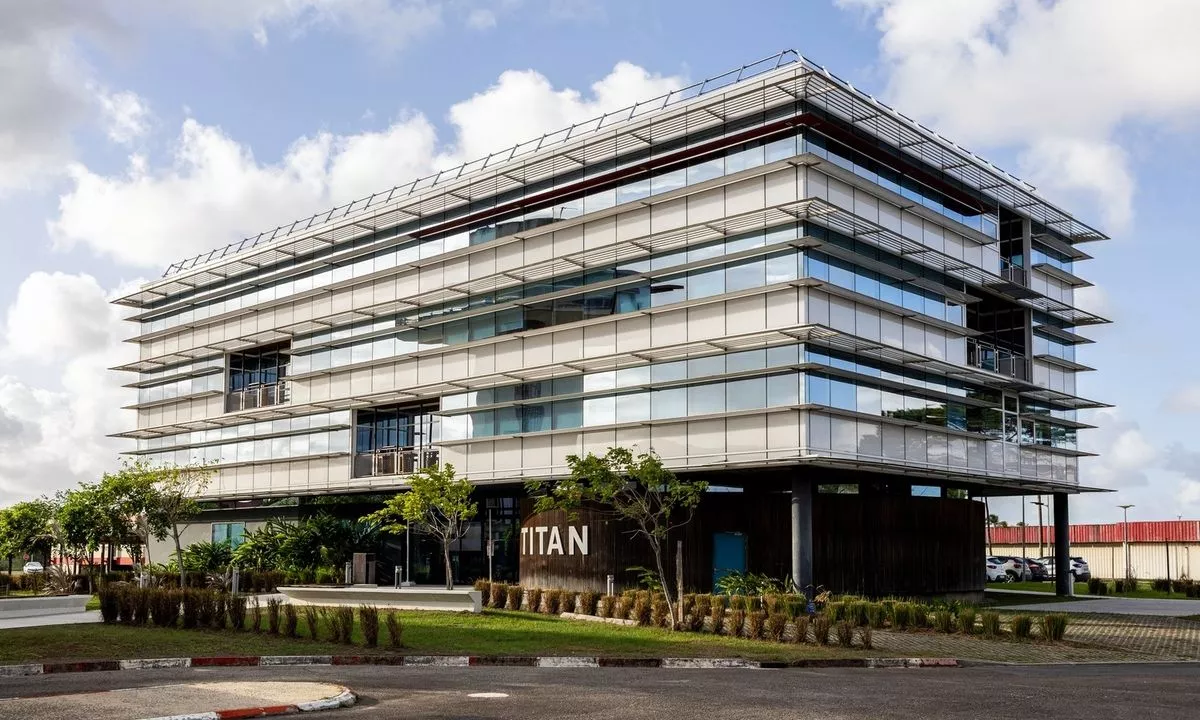Europe’s spaceport gets a new facility for satellites
On its second transatlantic voyage to Kourou last November, the Canopée ship carried Europe's spaceport's fourth payload container (CCU4), which should be operational by mid-2024 after completing a qualification phase.
The components of a new piece of equipment for satellites arrived on board the Canopée ship last November. They were then delivered to the spaceport for assembly and qualification testing.
Although Europe’s spaceport has nine clean rooms dedicated to satellite preparation prior to launch, only two payload containers (CCUs) are used when transferring satellites from one room to another, under optimum conditions of temperature (below 25°), humidity (below 50%) and particulate and molecular cleanliness (equivalent to that of an operating theatre).
"It was developed because the two containers currently in operation are ageing. The most recent one dates from the 2000s. Moreover, extending our range of CCUs should enable us to save time, which is essential if we want to increase our launch rate", Kevin Brethome, EPCU Facilities Expert at CNES.
Modernise and save time
The arrival of the CCU4 will be a game-changer.
In terms of materials, the CCU2 and CCU3 are very similar, with a galvanised steel enclosure. The CCU4, on the other hand, is lightweight with its aluminium structure. It can carry up to 16,000 kg of payload, a capacity midway between that of the CCU2 (4,800 kg) and the CCU3 (23,000 kg).
It is a hybrid solution that leverages the best of the two containers currently in operation, enhanced with a wealth of innovations. With its small fairing and ventilation provided by a nitrogen cylinder, the CCU2 is very simple, making it remarkably reliable.
The CCU3 is nothing short of a mobile clean room. It is much more technology-packed than its predecessor (generator set, air conditioning, air compressor, filters, dryer) and travels on air cushions to protect the payload as much as possible from shocks and vibrations.
The CCU4 borrows the simplicity of the CCU2: it has a passive system (no compressor, no air conditioning, no generator set) and an envelope made up of two half-fairings. And like the CCU3, it travels on air cushions and is pulled by a Louault tow truck with a steerable axle.
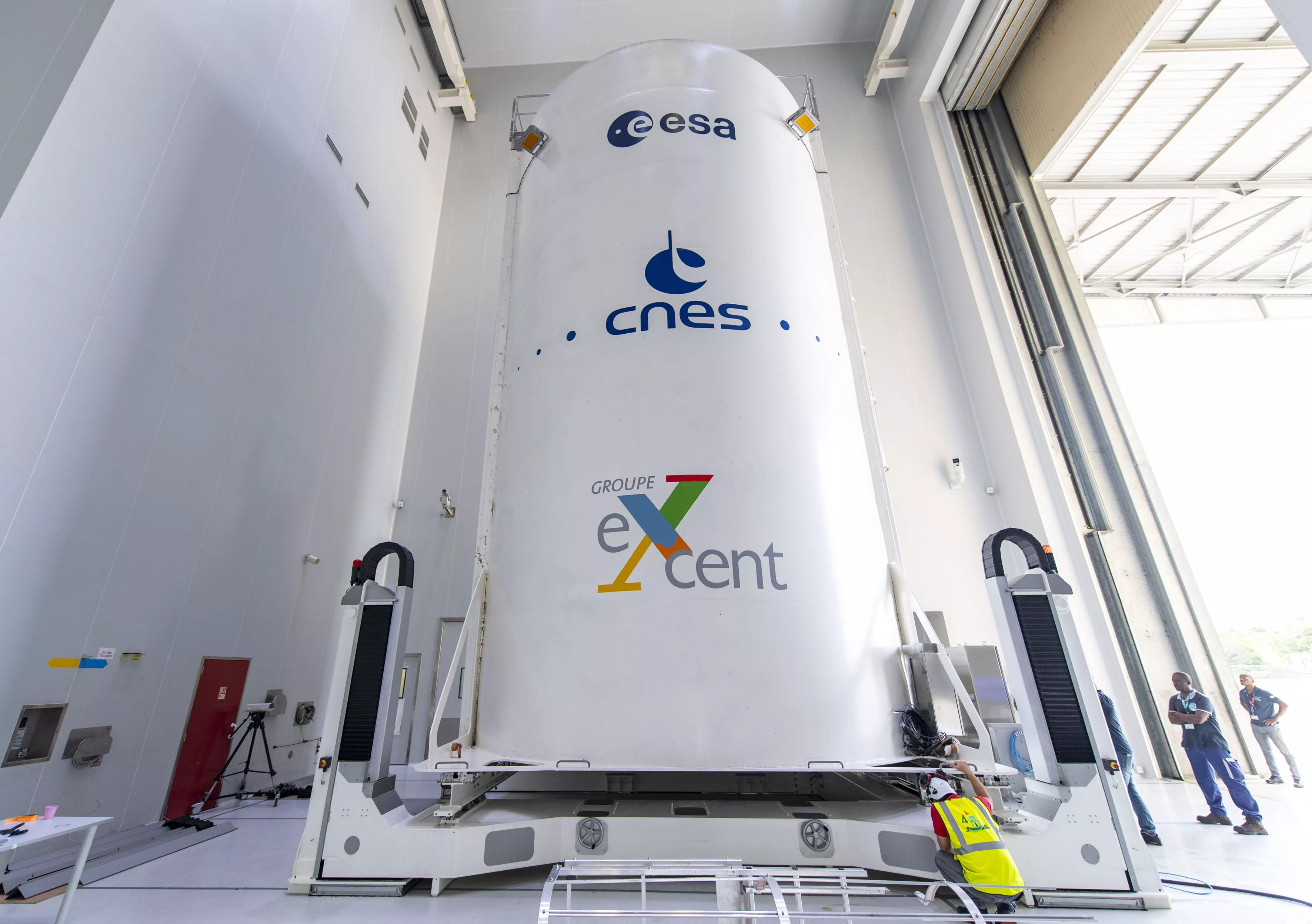
What innovations does this new container feature?
These similarities do not prevent the CCU4 from standing out with innovations offering greater reliability, safety, autonomy and ease of operation.
- These pieces of equipment are highly sensitive to variations in outside temperature, which limits the use of the CCU2 to night-time. The fairings of the new container have been reinforced to improve thermal insulation. As a result, it should be possible to use it during the day for up to six hours at a time while maintaining a constant internal temperature.
- The CCU4's movements on air cushions are motorised by an integrated electrical and pneumatic system. It is operated by remote control.
- Unloading is carried out by means of a raise-and-lower system consisting of four "feet", eliminating the need for a crane.
Safety, a top priority
"Although passive, the CCU4 contains a large number of electronic devices such as displays, actuators and sensors. As with previous CCUs, and because of the presence of fuel on board certain payloads, its electrical systems have been brought up to ATEX (Explosive Atmosphere) standards," explained Kevin Brethome.
The frame is suitable for all satellite interfaces. Here again, risk prevention has been stepped up, as the container base is fitted with a retention tank designed to collect propellant in the event of a leak. With all its strengths, the new CCU is eagerly awaited.
"We hope it will be ready for the first Ariane 6 transfer: that would be a great start!" added Kevin Brethome.
In the same section
-
The French Space Agency’s commitments in French Guiana : review and outlook
29/01/2025Europe’s Spaceport: Recap of 2024 and outlook for 2025
28/01/2025Welcome to the new website of Europe's Spaceport
22/01/2025Energy transition at Europe’s spaceport
08/04/2024[Space Museum] update on the progress of the works
29/01/20242024 at Europe’s spaceport
15/01/2024[Space Museum] Progress report
25/09/2023EPCU S5 under construction
05/09/2023[Space Museum] Renovation work makes headway
04/05/2023At Europe’s spaceport, the energy revolution is in full swing
08/12/2022
